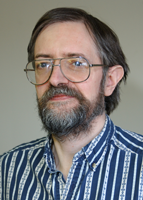Andrew C. Heath, D.Phil.

Andrew C. Heath, D.Phil., Spencer T. Olin Professor of Psychiatry and associate professor of genetics and of psychology, is an internationally renowned investigator in alcoholism and behavior genetics research known for his exceptional talent for recognizing and mentoring the future leaders in his field.
In 1983, Health received his doctoral degree in psychology from the University of Oxford. He completed postdoctoral training in human genetics at the Medical College of Virginia and then served on its faculty for five years. He joined the Washington University faculty as associate professor in 1989 and became a full professor in 1996. In 2000, he was honored as the Spencer T. Olin Professor of Psychiatry. He has served as director of the School of Medicine’s Alcoholism Research Center since 1999.
Health is considered a brilliant scientist known internationally for his twin studies on the role of genes and environment in alcoholism. He has published more than 350 papers and achieved prestigious Merit status from the National Institutes of Health. He has been honored with the Research Society on Alcoholism Distinguished Research Award and the James Shields Award for Twin Research.
Beyond his personal scholarly achievements, Heath is held in the highest esteem for his devotion to mentoring postdoctoral fellows, junior faculty and his own peers for the past 17 years. In recognition of his dedication, the National Institute on Alcohol Abuse and Alcoholism recently awarded him a coveted K05 award, which supports protected time for mentoring.
Colleagues describe Heath as a generous mentor with the remarkable ability to motivate and guide trainees in generating and exploring their own research ideas. In his multidisciplinary research environment, trainees are taught to conduct rigorous, ethical research and to embrace complexity and challenge. ‘He attracts the best and brightest students to work with him, and they leave even better and brighter,’ colleagues write.




